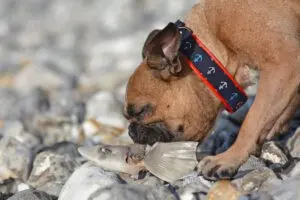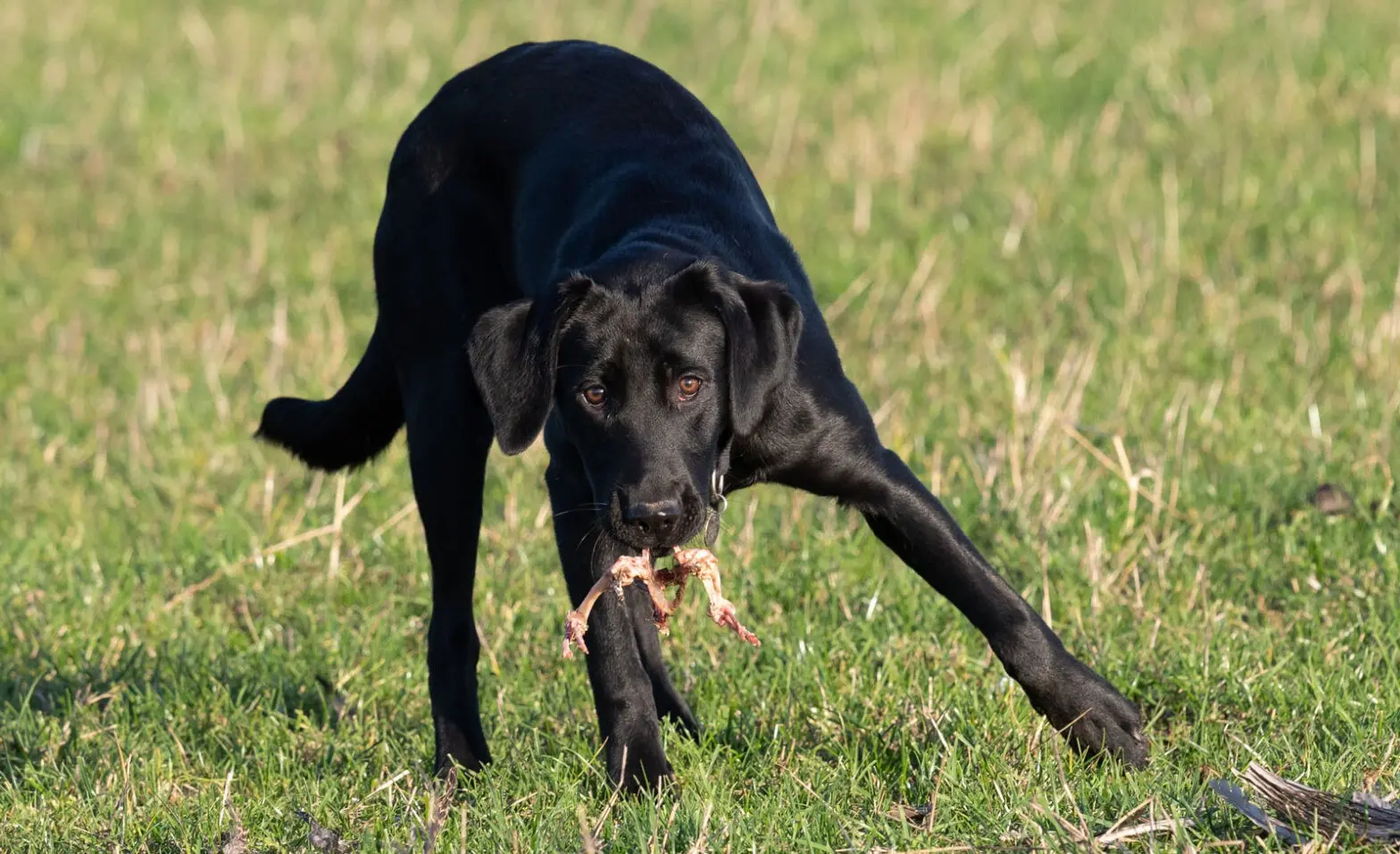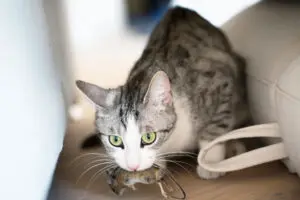It’s common for pets to eat things they shouldn’t. These can include human food, plants and material items, and even dead animals. (Yes, very gross – but common.)
At UrgentVet, we regularly hear from concerned pet owners whose dog or cat has decided to dine on something—or someone—that is past expiration. So, here’s a simple guide to making the best decisions for your pet, despite their indiscriminate taste buds.
Why are dogs and cats attracted to dead animals?
While humans find the smell of death and decay downright repulsive and nauseating, our pets are attracted to and delighted by this putrid perfume. Pets don’t classify odors as good, bad, or embarrassing—rather, they consider smells simply information about the world. The impressive canine and feline sense of smell can detect odor and decay from a great distance, making anticipating or interrupting the impending funky feast a challenge for owners.
Theories why dogs and cats are drawn to death include an instinctual desire to claim the spoils as their territory, or to camouflage their own scent and improve hunting success—although these are most often performed by rolling on or near the odor source. When pets eat animal remains, their motivation is most likely what you’d expect—a combination of novelty, hunger, and opportunistic scavenging.
Can eating a dead animal make my pet sick?
Dead animals and birds can pose many risks to pets. Many pets show no ill effects—other than temporarily losing our friendship and respect because of their gross food choices—but others may require hospitalized treatment. Common health hazards include:
- Secondary poisoning — If the dead animal has consumed a poison (e.g., rat or mouse poison, pesticide) your pet can suffer the same toxic effects, which can be fatal. In addition, animals themselves can be poisonous or venomous – examples include: Bufo toads, certain insects, and even some fish.
- Toxins — Birds and small mammal carcasses may carry clostridium botulinum (i.e., botulism), a neurotoxin that makes pets extremely sick and causes rapid-onset paralysis.
- Bacterial infection — Some wild animals can be hosts for leptospirosis, salmonella, and other harmful bacteria.
- Parasites — Wildlife commonly carry intestinal parasites, including roundworms and coccidia, as well as external parasites, such as fleas. Consuming a host animal can lead to parasitic infection in or on your pet.
- Gastrointestinal distress — Mild irritation such as gastritis or constipation is the most benign—but still unpleasant—outcome. If signs persist longer than 24 to 48 hours, contact your veterinarian.
While owners often worry about rabies, the likelihood of this virus transmission is extremely rare, unless your pet was bitten during a fight with the deceased animal.

What should I do after my pet eats a dead animal?
If your pet has eaten any portion of a deceased animal, contact your regular veterinarian. Do not attempt to induce vomiting without their approval. Provide the veterinary team with as much information as possible, so they can accurately assess the situation, and determine any potential risks. Important details include:
- When the event occurred
- The species consumed
- State of decomposition
- How much was eaten
- Any clinical signs your pet is experiencing
- Known toxins — If the dead animal may have been exposed to poisons (e.g., rat or mouse bait), let your veterinarian know, and also pass on any product information.
Based on this information, you may be advised to bring in your pet for an examination, testing, and potential hospitalization, or be instructed to monitor your pet at home and watch for illness signs, including:
If your pet isn’t on a heartworm, flea, and tick prevention plan, an intestinal parasite screening (i.e., fecal) should be performed to screen for coccidia and roundworms. Since infection won’t be immediately apparent, ask your veterinarian when to bring in a sample.
Can sniffing, rolling on, or playing with a dead animal put my pet at risk?
While these behaviors may leave your pet’s coat or breath smelling a bit ripe, they generally pose minimal health risks. Bathing your pet and avoiding doggy kisses is strongly advised.
Anything else I should watch out for related to pets eating animals?
In Florida, cold snaps are notorious for stunning or killing exotic reptiles (such as iguanas) that are not quite adapted for the periodic freezes. These animals lay stunned or even die in yards, on sidewalks and in bushes. It’s worth checking around for cold stunned animals if it’s applicable to your area. Help your pet steer clear of these.
How can I prevent my pet from eating dead animals?
The best way to prevent pets from consuming dead or decaying animals is to avoid potential opportunities. While dogs can be trained to “Leave it,” they may still indulge in a smelly snack when left unattended. Therefore, supervision is essential. Additional tips for protecting your pet from their own curiosity include:
- Training — Teach your dog to leave objects alone when requested. This can be challenging for sporting breeds (e.g., retrievers, spaniels) who instinctively want to carry and deliver birds and small mammals.
- Vaccination — Ensure your pet is current on their rabies vaccination.
- Leash your dog — Use a standard (i.e., non-retractable) leash to help you supervise your dog and identify potential hazards on your path.
- Check the area — Look for dead animals, remains, or excrement before allowing your pet to roam freely.
- Avoid using rat bait — Prevent secondary poisoning by removing any rat or mouse traps from your home, garage, and property.
- Use a basket muzzle — Indiscriminate eaters can be trained to wear a basket muzzle during outdoor excursions. The basket muzzle allows your dog to pant, drink, and accept treats, but stops them from picking things up off the ground.
Sometimes, despite your best efforts, pets will do what comes naturally—no matter how gross that seems to us. If your pet has consumed a dead animal or is showing toxicity signs, contact your regular veterinarian for guidance. For expert after-hours advice, veterinary care, and peace of mind, contact your nearest UrgentVet location—because your pet can’t wait to feel better.


